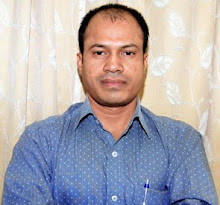(TOI)
NEW DELHI. From Sierra Leone and Sudan to Iraq and Afghanistan, the term "child soldier" has been used to denote the conscription of children below the age of 15 into armed conflicts. Now, "child pirate" is likely to gain similar currency.
Indian authorities have been confounded to find that as many as 25 of the 61 pirates, apprehended after a gun-battle with naval warships in Arabian Sea on Saturday, are children below 15.
"At least four of them are just 11 or so. It seems younger and younger children in Somalia are being pushed into piracy, which is proving immensely lucrative in the lawless country...the established pirates, who have got rich, are no longer sailing out on raids," said an official.
Though there were a few youngsters among the 43 pirates nabbed in the earlier two encounters with the Navy on January 28 and February 5, this is the first time so many children below 15 have been apprehended.
With India's legal system is grappling with the absence of a specific provision dealing with piracy in the Indian Penal Code (IPC), the presence of "child pirates" will further complicate matters. All the 61 pirates were handed over to the Yellow Gate police station in Mumbai on Wednesday.
So far, the Mumbai Police has been taking recourse to booking pirates nabbed by Navy and Coast Guard under provisions like rioting, trying to damage government property and attempt to murder as well as Unlawful Activities Prevention Act and Arms Act.
The government is now scrambling to bring a specific anti-piracy law, which seeks to fuse the provisions in IPC with United Nations Convention on Law of the Sea (UNCLOS), after pirates began to operate nearer Indian shores.
Pirates from Somalia, ravaged by decades of civil war and without a unified central government for around two decades, spread their wings much beyond the Gulf of Aden after 30 to 40 warships from different countries began to patrol that region.
The defence ministry's latest annual report, tabled in Parliament on Wednesday, said, "The threat of piracy and terrorism to international trade and safety of the sea lanes of communication has emerged as a major problem. The spread of piracy to areas close to our western seaboard has made this a cause of greater concern."
With the Navy on "an all-out offensive" against the pirates, prosecuting the ones who are apprehended is proving a major challenge. UNCLOS does define piracy as a universal crime while giving nations the right to seize and prosecute pirates, but many countries are yet to incorporate the convention in their own laws. Dealing with "child pirates" is bound to prove even tougher.
NEW DELHI. From Sierra Leone and Sudan to Iraq and Afghanistan, the term "child soldier" has been used to denote the conscription of children below the age of 15 into armed conflicts. Now, "child pirate" is likely to gain similar currency.
Indian authorities have been confounded to find that as many as 25 of the 61 pirates, apprehended after a gun-battle with naval warships in Arabian Sea on Saturday, are children below 15.
"At least four of them are just 11 or so. It seems younger and younger children in Somalia are being pushed into piracy, which is proving immensely lucrative in the lawless country...the established pirates, who have got rich, are no longer sailing out on raids," said an official.
Though there were a few youngsters among the 43 pirates nabbed in the earlier two encounters with the Navy on January 28 and February 5, this is the first time so many children below 15 have been apprehended.
With India's legal system is grappling with the absence of a specific provision dealing with piracy in the Indian Penal Code (IPC), the presence of "child pirates" will further complicate matters. All the 61 pirates were handed over to the Yellow Gate police station in Mumbai on Wednesday.
So far, the Mumbai Police has been taking recourse to booking pirates nabbed by Navy and Coast Guard under provisions like rioting, trying to damage government property and attempt to murder as well as Unlawful Activities Prevention Act and Arms Act.
The government is now scrambling to bring a specific anti-piracy law, which seeks to fuse the provisions in IPC with United Nations Convention on Law of the Sea (UNCLOS), after pirates began to operate nearer Indian shores.
Pirates from Somalia, ravaged by decades of civil war and without a unified central government for around two decades, spread their wings much beyond the Gulf of Aden after 30 to 40 warships from different countries began to patrol that region.
The defence ministry's latest annual report, tabled in Parliament on Wednesday, said, "The threat of piracy and terrorism to international trade and safety of the sea lanes of communication has emerged as a major problem. The spread of piracy to areas close to our western seaboard has made this a cause of greater concern."
With the Navy on "an all-out offensive" against the pirates, prosecuting the ones who are apprehended is proving a major challenge. UNCLOS does define piracy as a universal crime while giving nations the right to seize and prosecute pirates, but many countries are yet to incorporate the convention in their own laws. Dealing with "child pirates" is bound to prove even tougher.


No comments:
Post a Comment